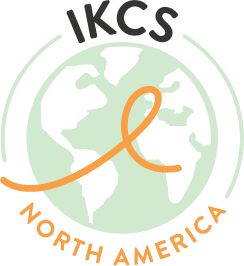
Three Kidney Cancer Experts to Receive Awards at 2024 IKCS: North America
September 27, 2024
The 2024 International Kidney Cancer Symposium (IKCS): North America, taking place in Louisville, Kentucky on November 7-9, will feature three…
Read More
Dr. David Braun received a 2022 KCA Trailblazer Award for his research on “Dissecting the immunobiology of chromophobe renal cell carcinoma using single-cell transcriptomics.” Dr. Braun is a medical oncologist and an Assistant Professor of Medicine, Pathology, and Urology, and the Goodman and Gilman Yale Scholar at the Yale School of Medicine. We spoke with Dr. Braun about his work and the impact it can have on people with kidney cancer.
Can you summarize your research study?
Over the past 5 years, a new type of therapy called “immune checkpoint inhibition” has become the new standard treatment for many patients with advanced kidney cancer. While these medications have transformed the lives of many patients with kidney cancer, they unfortunately do not benefit all patients. One important reason is that most research (and most clinical trials) study the impact of these medicines only in the most common subtype of kidney cancer – clear cell – which accounts for about 75% of kidney cancers diagnosed each year. By contrast, the chromophobe subtype accounts for about 5% of kidney cancers each year. Unlike clear cell kidney cancer (and likely other subtypes), chromophobe tumors typically are resistant to the commonly used checkpoint inhibitor medicines. Therefore, the goal of this project is to improve our understanding of chromophobe tumors at the bench that can then be translated into new therapies at the bedside and ultimately improve the outcomes of patients with advanced chromophobe renal cell carcinoma (RCC).
Why are you interested in chromophobe RCC as a research subject?
The revolution we’ve seen with patients for kidney cancer has touched the lives of so many people with clear cell RCC and with a lot of other different histologies RCC subtypes – unfortunately, with the exception of most chromophobe kidney cancers.
That’s something I’ve seen anecdotally in my clinic and unfortunately the data has borne that out. As more immunotherapy trials in non-clear cell RCC have come out, the data is really encouraging for many subtypes, but chromophobe RCC patients consistently seem to benefit less from these therapies.
That’s really the motivating factor for this particular work. I’m interested in tumor immunology and kidney cancer biology broadly and we’ve applied single cell methods in clear cell and found some interesting things that helped us understand disease progression and given us some new targets. That naturally led to using similar methods to better understand chromophobe and why this histology isn’t responsive to immunotherapy and how we can maybe rethink these types of therapy and what’s needed for this type of tumor.
Is there really such a large difference between what is known about what clear cell tumors are like versus chromophobe?
Yeah, 100%. Compared to clear cell and even something like papillary, chromophobe is much lower on the list. It’s a less prevalent tumor so there’s less opportunity to study it. It’s an outlier in a lot of ways. Genetically, it looks odd. There has generally been less work done on the chromophobe tumors themselves and there’s much less known about the immune-tumor interaction.
How are most people with a chromophobe diagnosis treated today? What needs to change?
For patients with variant histoloties (i.e. “non-clear cell) RCC if clinical trials are available, i think that is often the best choice. It allows them to be treated optimally and in a structured way where we learn as a community what to do as opposed to anecdotes, which is often what we’re left with.
Otherwise, there isn’t a clear path for chromophobe. There’s a not unreasonable camp that still thinks immunotherapies still hold the key to long term or durable response. There is truth in that but for chromophobe its’ still not my first vote because the response is typically less than 10%. Often I’ll start along the lines of lenvatinib plus everolimus. Anecdotally I’ve seen some nice responses.
Looping back to chromophobe being an understudied tumor, part of that is the belief that it’s a “better behaved” tumor. Historically that’s true in certain ways in that, if someone had a localized tumor and had it surgically removed, the chances of it coming back later on was less than something like clear cell. The hard part is that once it’s become metastatic or advanced, chromophobe is not a “better behaved” tumor, in fact it’s the opposite because immunotherapies are less effective and it’s challenging to treat. That again was a motivating factor.
Are you hoping to find an immunotherapy that would be effective for chromophobe or could your research identify some other type of treatment?
My bias is towards immunotherapies. However, when we talk about immunotherapy nowadays it’s the era of a very narrow brand of immunotherapy, which is immune checkpoint inhibitors. But to take a step back, for the body to mount an effective immune response, it has to get immune cells called T-cells into the tumor, it has to have T-cells that are capable of recognizing tumors, which is not always the case, and they have to be capable of being activated and killing. In the case of clear cell kidney cancer, the first two aren’t necessarily issues but T-cells tend to get “exhausted,” so you give a checkpoint inhibitor immunotherapy to remove one of those immune “brakes”, and they’re poised to become functional again.
We don’t know that for chromophobe. Most of the evidence shows there aren’t that many T-cells there to begin with, it’s not clear they are capable of recognizing the tumor, and we don’t know how functional they are. So we have to diagnose the problem before we come up with the best approach to therapy. Which of those things is it? For example, if it’s a matter of not having enough T-cells in the tumor, that might indicate T-cell therapy or a cancer vaccine to drive T-cells into the tumor rather than a checkpoint inhibitor.
What would you tell someone with a chromophobe diagnosis to give them hope?
There are tremendous advances in kidney cancer therapy in general. Chromophobe has not been at the forefront of that because the lack of investment in general. Hopefully we’re at a point where that’s starting to change. There are more people in chromophobe biology. I am. Dr. Elizabeth Henske at Brigham and Women’s Hospital in Boston has ben studying this for a while. Dr. Ari Hakimi at Memorial Sloan Kettering Cancer Center has done some excellent work. Drs. Toni Choueiri and Bradley McGregor at Dana-Farber Cancer Institute have also been committed to studying these less common variants. And there are many, many others.
We have a wonderful toolkit we didn’t have five years ago to dissect the biology of chromophobe and make those next advances. Now we have the interest in it. And if we’re able to partner with patients who support it, that is the combination that helps to make the big moves.
What motivates you?
Being able to go back and forth between lab science and the clinic. Being a clinician is a tremendous privilege. In medical oncology you get to build long-term relationships with patients and families to be there at the most difficult and also some of the most joyous moments of their lives. So any time I’m frustrated in the lab because an assay like a Western blot didn’t work, my clinical work and interactions with patients helps me keep perspective. It’s also a ton of fun working in in teams with people. In our lab we have everyone from those who have just graduated college to active medical students to post-doctoral fellows , even practicing urologists who have come back to the lab. And then moving beyond our local environment to have the opportunity to work with top people in the field, I learn something every time I talk to them.